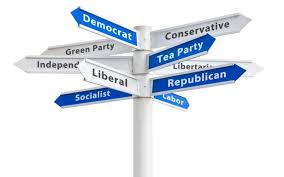International Sociology by Sinan Baykan (Kirklareli University, Turkey)
The Presidentialization of Political Parties has been recently reviewed in the International Sociology
International Sociology by Sinan Baykan (Kirklareli University, Turkey)
The Presidentialization of Political Parties has been recently reviewed in the International Sociology
Per lo scorcio del 2017, e a futura memoria, consiglio lettura del capitolo Passarelli-Tronconi-Tuorto nel volume curato da P. Corbetta (Il Mulino).
qui un’anteprima
Che partito?
 Chi dice organizzazione dice oligarchia. La celebre frase di Robert Michels [1966: 523; ed. orig. 1911] rappresenta la summa della teoria che l’autore tedesco avrebbe voluto assumesse forma di legge sociale per tutte le organizzazioni, e in particolare per i partiti politici, e ben riassume la contraddizione che governa il Movimento 5 stelle (M5s). Un partito che ha tratti precipuamente leaderistici, personalistici, aziendali, ma anche un forte accento sulla democrazia interna e la partecipazione, l’assenza di gerarchia e l’orizzontalità dei rapporti interni («uno vale uno»). A seconda di come si interpretano queste caratteristiche, il M5s rappresenta un ossimoro irrisolvibile, destinato ad implodere o, al contrario, un’esperienza organizzativa originale e innovativa rispetto ai partiti «classici», destinata a fare scuola e ad essere replicata altrove. Il presente capitolo si propone di far luce sulla natura organizzativa del M5s, analizzando le contraddizioni che lo caratterizzano fin dalla nascita.
Chi dice organizzazione dice oligarchia. La celebre frase di Robert Michels [1966: 523; ed. orig. 1911] rappresenta la summa della teoria che l’autore tedesco avrebbe voluto assumesse forma di legge sociale per tutte le organizzazioni, e in particolare per i partiti politici, e ben riassume la contraddizione che governa il Movimento 5 stelle (M5s). Un partito che ha tratti precipuamente leaderistici, personalistici, aziendali, ma anche un forte accento sulla democrazia interna e la partecipazione, l’assenza di gerarchia e l’orizzontalità dei rapporti interni («uno vale uno»). A seconda di come si interpretano queste caratteristiche, il M5s rappresenta un ossimoro irrisolvibile, destinato ad implodere o, al contrario, un’esperienza organizzativa originale e innovativa rispetto ai partiti «classici», destinata a fare scuola e ad essere replicata altrove. Il presente capitolo si propone di far luce sulla natura organizzativa del M5s, analizzando le contraddizioni che lo caratterizzano fin dalla nascita.
Osservare l’evoluzione e analizzare i dilemmi del M5s è particolarmente utile in questa fase. Per tutti i partiti il momento dell’istituzionalizzazione, quando si solidificano e si formalizzano le strutture gerarchiche e i rapporti di forza interni è un passaggio delicato e decisivo, oltre che il passaggio in cui agisce con maggior forza la «legge ferrea dell’oligarchia» citata in apertura. Le domande cui il capitolo offre una risposta sono le seguenti: che tipo di partito è il Movimento 5 stelle? Possiamo rintracciare al suo interno elementi organizzativi presenti in altri partiti o la sua esperienza è totalmente innovativa? E quanto è riuscito a realizzare dell’ideale che ne ha fatto muovere i primi passi, quello di rivoluzionare il modo di fare politica nelle democrazie rappresentative, «riconoscendo alla totalità degli utenti della Rete il ruolo di governo ed indirizzo normalmente attribuito a pochi»?
PARTIES AND PARTY SYSTEMS
Crisis and perspectives after the latest electoral cycle
Wed November 8th – Department of Political Sciences – Sapienza University | Roma
here the full programme
 Parties and party system alike are facing many deep changes in different countries, both in Europe and in the rest of the world. The stability of the party systems, both in their bipolar or multipolar assets, has been challenged since the Seventies at the least.
Parties and party system alike are facing many deep changes in different countries, both in Europe and in the rest of the world. The stability of the party systems, both in their bipolar or multipolar assets, has been challenged since the Seventies at the least.
Moreover, in the last decade this process of increasing fragmentation has been accentuated by the rising of new populist and radical, anti-system political parties. Therefore, the so called “established” democracies are facing harsh time in terms of political stability, institutional performances, and citizens/voters mistrust.
The workshop represents an attempt to outline the main trend in a bunch of countries, among the most representative democracies. The presence of experts, from both Italian and non-Italian universities offer a unique opportunity for a scientific study of a very crucial topic in Political Science.
CONTEMPORARY ITALIAN POLITICS N. 2/2014 (link)

This article deals with voter turnout and the economic crisis, and focuses on the results of the 2013 parliamentary elections in Italy. A consolidated tradition of studies has attested to the impact of a negative economic cycle, unemployment and various issues related to the economy, on the decision whether or not to vote, although the results remain controversial. Some scholars have asserted that, during a period of crisis, voters react positively, using their collective voice to demand more attention to their interests. Others argue that negative circumstances distance citizens from the electoral arena bringing a higher rate of abstention as a consequence. The peculiarity of the political situation in the period leading up to the 2013 election in Italy (the unexpected end of Berlusconi’s government in 2011, the period of transition under Monti’s technocratic government and the rise of the Five Star Movement [MoVimento Cinque Stelle, M5S] as a new competitor) strongly influenced voters’ evaluations of how political parties were going to compete and whether, or for whom, they would vote. Survey results show that discontented voters largely used abstention as a strategy to express their resentment, but that the most politically engaged preferred to choose a radical party (M5S), rather than refusing to vote.
il nuovo volume ITANES, “Voto amaro“, spiega il comportamento di voto degli italiani alle ultime (tragiche) elezioni. E noi analizziamo il voto di chi (ancora una volta) ha scelto B. (link sull’immagine per l’articolo)
